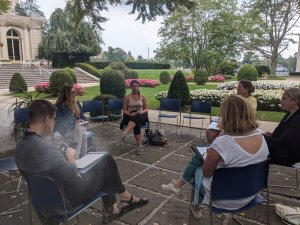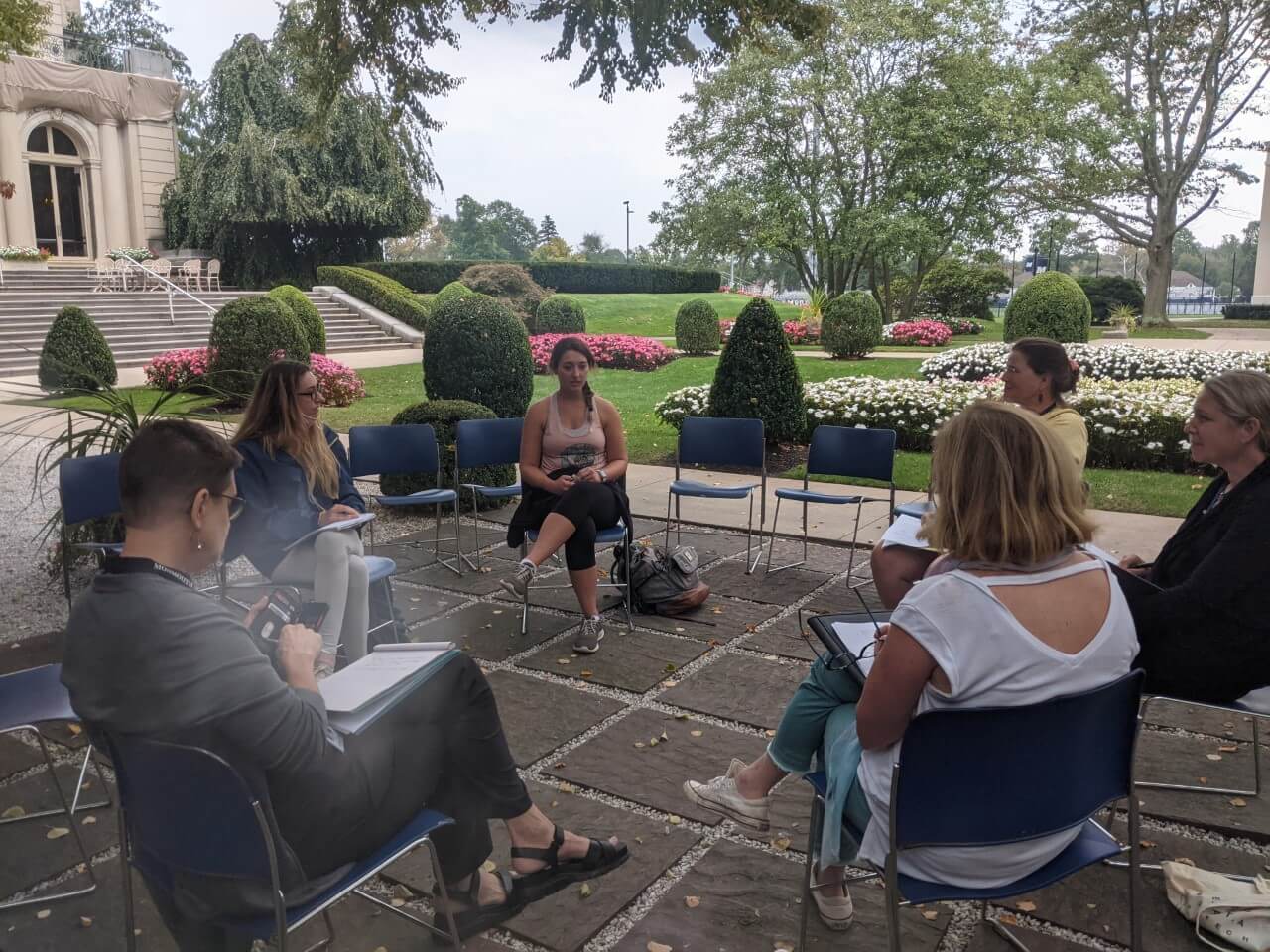 By Kyra Velock
By Kyra Velock
On Monday, October 4, 2021, Dr. Megan Delaney hosted an event at the Third Annual Climate Crisis Teach-In at Monmouth University. Dr. Delaney addressed “eco-wellness,” a fairly new concept that refers to how the current climate crisis impacts mental health and overall wellness.
As a professional counselor, Dr. Delaney has years of experience using this therapeutic approach, which involves the concept of eco-therapy. This unique form of therapy focuses on integrating the natural world into emotional health and well-being. Dr. Delaney strives to incorporate the natural world into her counseling sessions by having her appointments outside in nature. She also makes an effort to have her clients focus on the present sounds, sights, and smells of the environment as a way to relax and clear the mind of the past and the future.
As eco-wellness correlates to the current climate crisis, this event discussed ways to cope with climate-related grief and anxiety. The group discussion touched on individual experiences about overconsumption and waste, especially in America, and how it correlates to mental health and well-being. Delaney also talked about the seven factors of eco-wellness and how we can use them to our advantage when confronting climate anxiety. These factors are physical access, sensory access, connection, protection, preservation, spirituality, and community connectedness.
Physical and sensory access involve the ability to interact with nature, as well as touch, smell, see, or hear nature in the absence of physical contact with nature. Connection refers to pleasant cognitions and emotions elicited by one’s relationship with nature. Protection, also known as “nature self-efficacy,” is feeling effective when navigating natural settings and having a sense of what might contribute to one’s survival and enjoyment when in nature. Preservation, also known as “environmental agency,” is acting on behalf of the natural world, such as doing one’s part with recycling or supporting environmental causes. Spirituality is feeling connected with one’s conception of a higher power and/or life-guiding principles elicited through one’s connection with nature – this could involve meditation, religion, yoga, journaling, coloring, etc. Lastly, community connectedness refers to feeling connected with others in nature, perhaps coming together to support an environmental cause.
Climate-related grief and anxiety may be mitigated when practicing the seven factors approach to eco-wellness, but as climate change is an ongoing issue in the world that affects everyone, it is difficult to fully combat these feelings. The seven factors are simply ways to help cope with the climate crisis as the world continues to change. Dr. Delaney suggests that feeling connected to nature by spending more time outside and being active in the environmental community are some of the best ways to cope with climate grief.
According to EPA data, Americans spend approximately 90 percent of their time indoors. Because humans spend so much time indoors, it is easy to forget our role in nature and the ability nature has to heal us. Over the centuries, humans have become very disconnected from nature and feel that nature is something separate from us. Humanity is not separate from nature, but merely an extension of it. Spending time outdoors and with others is very healing as we remember our connection to nature and see ourselves as part of it instead of separate from it.

